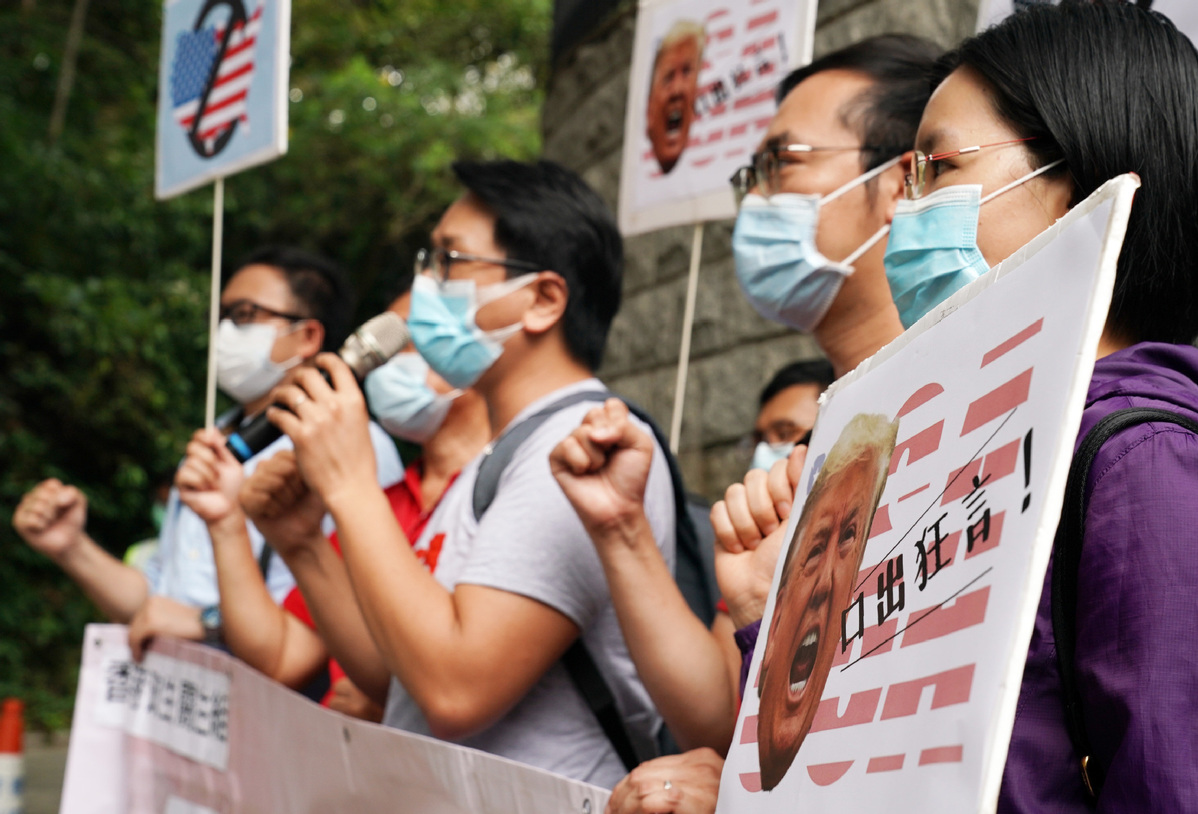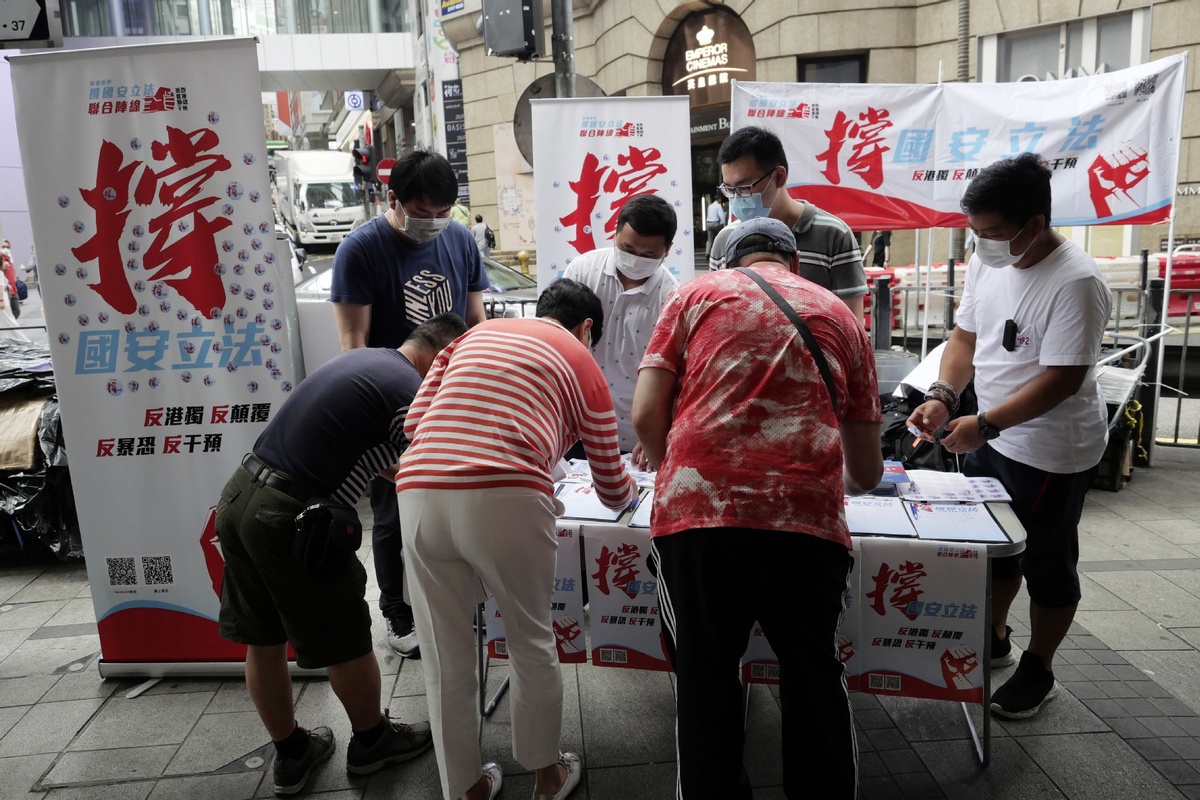Six things you need to know about the national security legislation for Hong Kong SAR


Falsehood #2: It is not necessary for China to take the action at the moment.
The truth is: The current situation makes it imperative to establish and improve, at the state level, the legal system and enforcement mechanisms for safeguarding national security in the HKSAR. The decision is fundamental to the enduring success of "one country, two systems" and is of the greatest urgency.
◆Article 23 of the Basic Law stipulates that the HKSAR shall enact laws on its own to safeguard national security. Nearly 23 years after Hong Kong's return to China, however, the relevant legislative process is still not materialized due to the sabotage and obstruction by anti-China, destabilizing elements in Hong Kong as well as hostile forces from the outside. Given this situation, it has become quite difficult, if not impossible, for the HKSAR to enact the relevant laws on its own.
◆Over the past weeks and months, activities that endanger national security have intensified in the HKSAR, posing notable risks to the long-term prosperity and stability of the Hong Kong and to the security of the country. In particular, since the turbulence over the amendment bill in 2019, the "Hong Kong independence" and radical separatist forces have become further emboldened and escalated their violent terrorist activities. Some separatists even made a public appeal for foreign sanctions against China and invited the US military to Hong Kong. External forces and "Taiwan independence" forces have blatantly ramped up intervention in Hong Kong affairs, which seriously challenges the "one country, two systems" principle, gravely undermines Hong Kong's law and order, and poses real threats to the country's sovereignty, security and development interests. Forceful measures are therefore required to prevent, forestall and punish these acts.

Falsehood #3: The legislation will undermine "one country, two systems".
The truth is: On the contrary, the legislation will ensure the successful implementation of "one country, two systems". Article 1 of the NPC's decision states clearly that the country will unswervingly, fully and faithfully implement the principles of "one country, two systems", "the people of Hong Kong administering Hong Kong" and a high degree of autonomy.
◆"One country" is the precondition and basis of "two systems", while "two systems" is subordinate to and derived from "one country". "One country" is the foundation. Should the principle of "one country" be undermined, "two systems" would be impossible to practice. One important reason for the turbulence in Hong Kong is that the anti-China, destabilizing elements in Hong Kong and external forces have shown no regard for "one country" as the foundation and challenged the bottom line of the "one country, two systems" principle.
◆The legislation for Hong Kong will not change the "one country, two systems" principle. It will not change the capitalist system or the high degree of autonomy practiced in Hong Kong. It will not change the legal system in the HKSAR. Nor will it affect the HKSAR's executive, legislative and independent judicial power, including that of final adjudication.
























